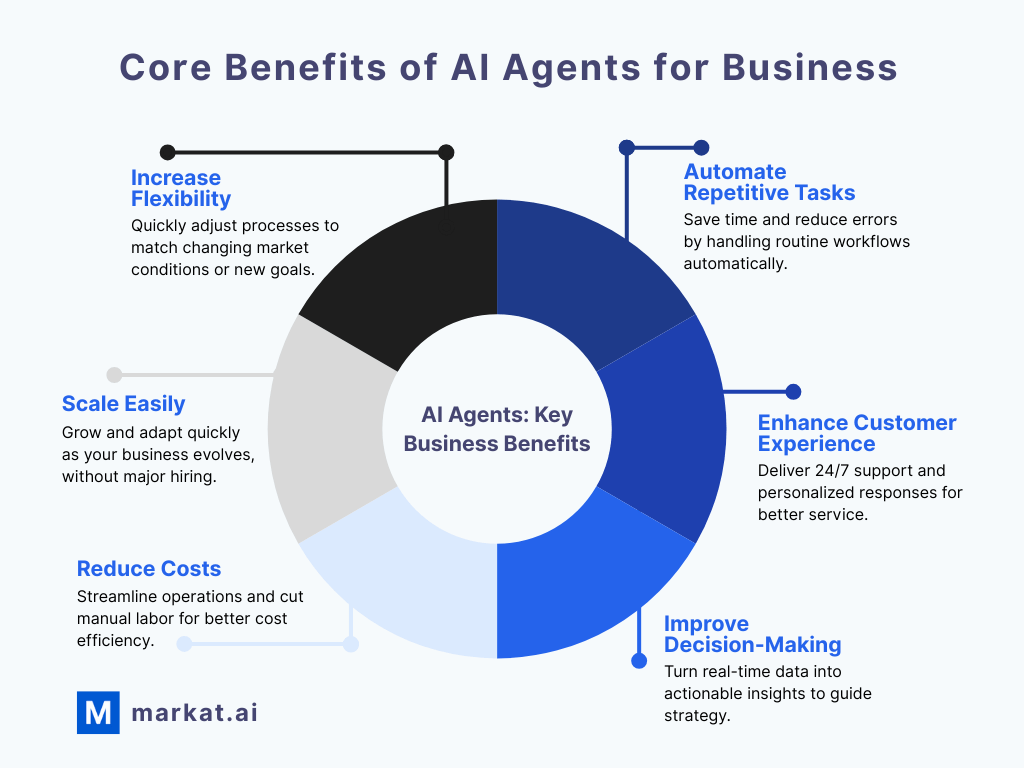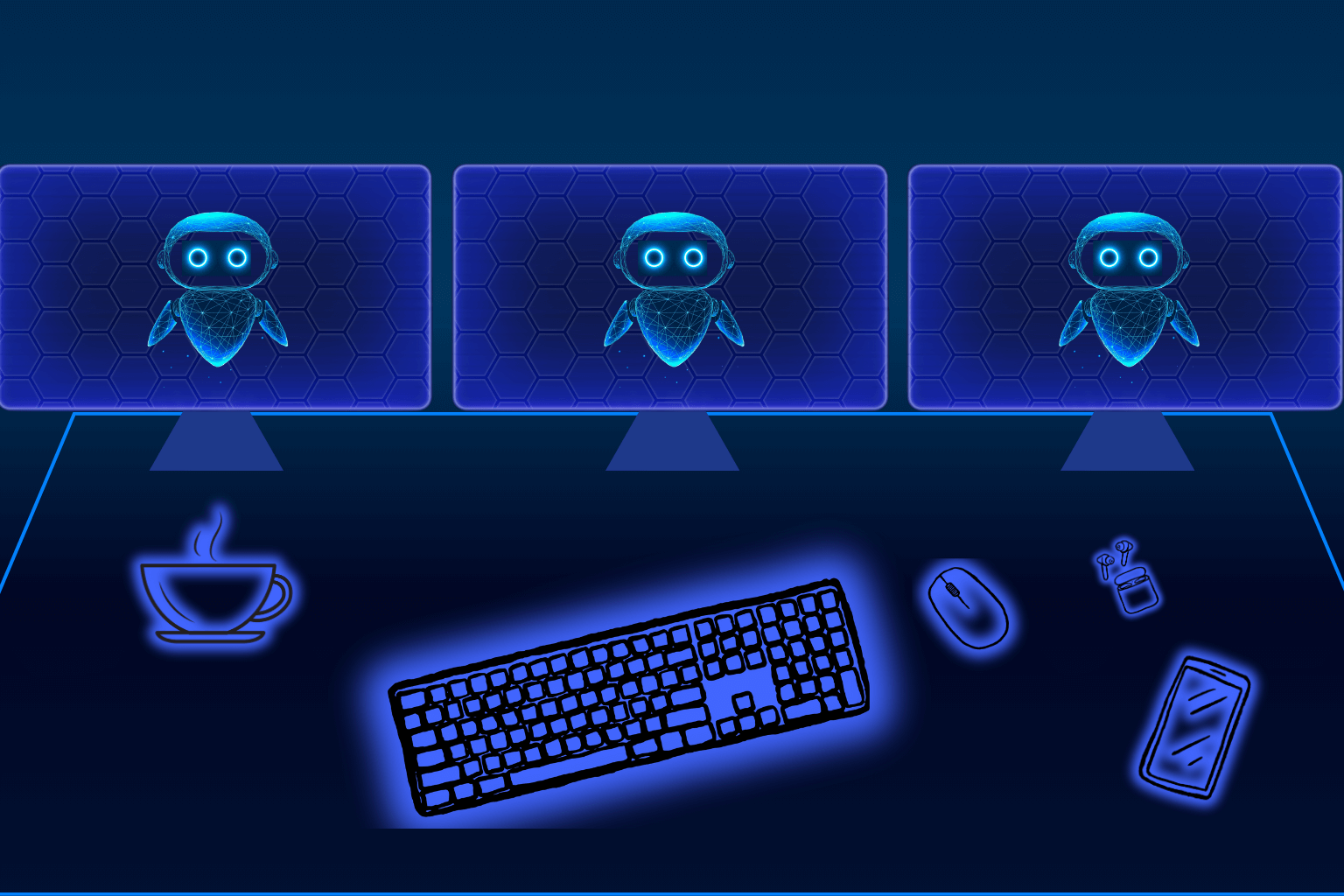AI adoption is moving fast. Every week, new tools claim to “transform” work. But for many leaders, the role of AI agents is still unclear. An AI agent is not just a chatbot — it’s software that can make decisions, take action, and integrate with business systems. Here’s a full definition.
The purpose of this guide is simple: to cut through the hype and show how AI agents can help businesses today — with clear benefits, real-world examples, and steps you can take to use them effectively.
Why AI Agents Matter for Businesses
Companies are moving beyond basic automation into intelligent, adaptive systems. Unlike static tools, AI agents can:
- Execute tasks across platforms
- Pull and analyze real-time data
- Make decisions within defined rules
- Free up people to focus on growth and strategy
- Startups: Scale operations without extra headcount.
- SMBs: Access enterprise-grade automation without enterprise costs.
- Enterprises: Reduce admin burden so teams focus on strategy.
The message is clear: AI agents are not optional. They’re a competitive advantage.
Core Benefits of AI Agents in Business
- Automate repetitive tasks – Faster execution, fewer errors.
- Enhance customer experience – 24/7 personalized support.
- Data analysis & decision support – Real-time, actionable insights.
- Cost reduction – Leaner operations with fewer manual steps.
- Scalability & flexibility – Adjust quickly as business needs change.

Real-World Use Cases of AI Agents in Businesses
Customer Support & Chatbots
AI agents handle FAQs, escalate only when needed, and deliver instant resolutions.
Sales & Lead Qualification
Agents score, qualify, and nurture leads before sales teams step in.
Marketing Automation
Campaigns can launch, test, and optimize in real time.
Operations & Supply Chain
Inventory monitoring, demand forecasting, and logistics optimization.
HR & Recruitment
Resume screening, interview scheduling, and onboarding.
Finance & Compliance
Expense tracking, fraud alerts, and regulatory compliance.
AI Agents vs Traditional Business Software
| Feature | AI Agents | Traditional Software |
|---|---|---|
| Autonomy | Make decisions | Predefined instructions |
| Adaptability | Learn & improve | Static functionality |
| Integration | Multi-platform APIs | Limited integrations |
| Cost efficiency | Reduce long-term costs | Frequent updates |
| Scalability | Easily scalable | Limited by design |
How Businesses Can Start Using AI Agents
- Assess your needs – Pick a real business problem to solve.
- Start small – Run a pilot in one department.
- Choose the right platform – See best platforms for AI agents.
- Train & customize – Align the agent with workflows and brand.
- Monitor & optimize – Treat agents like team members — review and refine.
Challenges & Considerations
- Data privacy & compliance – Must meet local laws and standards.
- Integration with legacy systems – Often requires extra development.
- Change management – Teams need training and trust.
- Avoiding over-reliance – AI should support, not replace, human judgment.
Why Markat.ai is the Ideal Partner for Businesses
- Marketplace of pre-built agents – Find solutions across customer service, operations, HR, and more.
- Test before committing – Validate in real environments.
- Direct access to developers – Customize and improve over time.
FAQ
What is the main advantage of AI agents for businesses?
They automate processes, save time, and adapt to changing needs.
Which industries benefit most?
Retail, finance, healthcare, logistics — but any industry with repetitive processes.
How much does it cost?
Varies. Many platforms use pay-as-you-go, making it possible to start small.
Can AI agents work alongside employees?
Yes. The best results come from blending human judgment with AI efficiency.
Conclusion
AI agents are not hype — they’re already helping businesses cut costs, increase efficiency, and stay competitive. The difference between success and wasted effort is knowing where to apply them and keeping people in control.
Explore Markat.ai to find the right AI agent for your business today.

